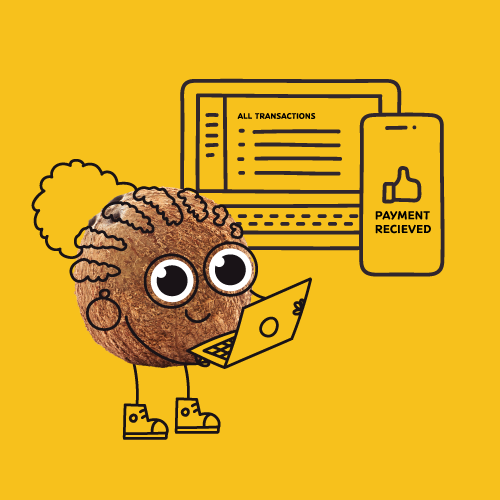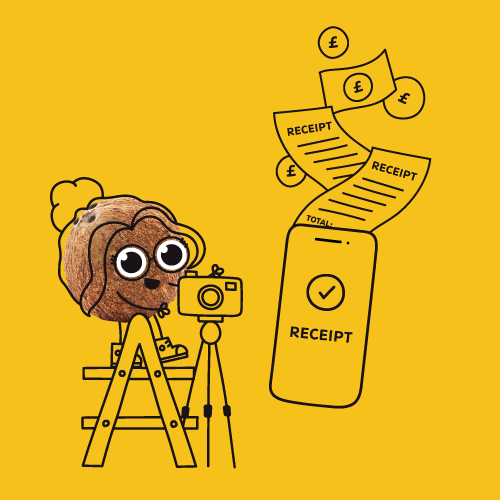When I was made redundant in May 2019, I just jumped in with both feet. I was really determined and I was ready for it.
It’s eighteen months now since John Williams took the plunge and used his redundancy as a springboard to pursue a freelance career combining his twin passions for copywriting and photography.
Listening to his take on this first year-and-a-half is so interesting – not least because he didn’t see himself as being “entrepreneurial” but is now clearly thriving on the challenge of being a business owner.
You think, “Oh, I’m just going to get some clients and they’ll pay me.” And then you realise you are all these things too: the founder, the marketer, the admin person, the finance person, all in one.
He’s also got some really helpful tips if you’re facing redundancy and thinking that freelancing could be your best bet in the current climate.
Jade: What made you decide to combine copywriting and photography?
Copywriting had been the day job and then photography just gained momentum, basically. I realised I’d been doing it for 12 or 13 years and was good enough to pitch myself as being fully competent at both skills.
The dream is to be able to take on a project as both the copywriter and the photographer. To wrap that up as one proposition. I’ve had some really useful advice to combine it all into one project and then you can charge more too.
Jade: When did you decide to go freelance and what was it that made you take the plunge?
It was partly because I’d been made redundant but I’d also been thinking about doing it for a while anyway and I really wanted to make more time for photography.
And the gardening leave meant he had about six weeks of paid leave when he could start researching and setting himself up. If you don’t have gardening leave or a redundancy payment then you should aim to have about three months of expenses saved up before you start - ideally more if you can.
Jade: What was the nagging feeling that made you consider going freelance in the first place?
It was the photography really. When I talk about being a copywriter and a photographer, people always want to ask me about photography because I shoot gigs . It’s a cool thing to talk about!
No one ever asks me about the copy I wrote for a button on a website - but they always want to know what it was like shooting at a gig! So I wanted to make more time for the photography. But at the same time I genuinely love both things.
It was also about timing and feeling that at this stage in life the 9-to-5 wasn’t right for him. Having worked for some great companies and some not-so-great companies, he’d got to a point where he didn’t want to be a cog in the machine anymore. But what started as “going freelance” has step by step evolved into running a business.
I started out with the idea that I was a freelancer but then had to acknowledge that I was running a business whether I liked it or not!
Jade: Do you have an end goal? Is it to be your own boss, or to be able to manage your own time outside of work?
I definitely like being my own boss. I love the feeling of being independent and being being in charge of my own time. Not having to ask anyone for time off is brilliant. I like the idea of being able to take a month off. I’ve not done it yet as I’ve been too busy so far – but I like knowing that I could!
I’m now trying to find a balance between being busy and being comfortable.
Jade: Where do you go for advice?
The Being Freelance community on Facebook is really good. Also, there are similar groups for photography, but Being Freelance is particularly useful for general questions about the issues all freelancers face. Also, The Dots and Work Notes.
More general advice is to build your network and use places like LinkedIn and Twitter to grow your contacts and learn from others out there with relevant jobs and experience.

Jade: What would you say is the impact of your business on your clients?
It’s the combination of both photography and copywriting - but it’s underpinned by being likable and easy to get on with.
I think what people are looking for in general are just professionals who are really good at what they do and are easy to deal with.
Jade: What have you done to diversify your business as a result of Covid-19?
Something like Covid forces you to diversify and I think that’s really a natural challenge of being a freelancer.
In John’s case, Covid-19 has meant that live events photography has dried up for now. However, he’s been able to focus instead on portrait and product photography which has actually been really useful since the live work is competitive and doesn’t always pay much.
Jade: Do you have any advice for anyone who wants to start a business but is worried that we’re not yet out of the woods with the pandemic?
Gut feel counts for a lot. When I went freelance 18 months ago, I jumped in with both feet because I knew I wanted to do it—and that I could do it. But it wouldn’t have been right for me, say, five years’ earlier.
I was 36 but someone else could be 20, 25, or even 45 when you know it’s the right thing for them. If you have reservations you should listen to them.
Also, now isn’t necessarily a bad time:
Some companies have thrived during Covid so you have to seriously consider the situation for the area you want to enter.
If you’re realistic about what you can offer and what work is out there, then you can start using your network and start doing work on the side. John’s also evangelical about the need to start out with a business account.
I’d set up Coconut as a business account six months before I was made redundant to help with managing my photography income properly. I’d had a few nightmare tax returns to do before that with costs for all my photography coming out of my personal account! I hade to go through a years spending, line by line, to find all of my business expenses - which is as tedious as it sounds!
I always recommend Coconut but however you do it, you can’t underestimate how important it is to separate out your business account from your personal account. When I open the app, it's a tangible overview of my business where I can see how things are going. My favorite feature is the tax estimate so I know how much to keep aside - I can't explain how reassuring this is.
Jade: How did you decide what to charge?
One of the most brilliant bits of advice I’ve had is to only take on work for four days a week and then spend the fifth day doing all those other things; like growing your network, writing posts, doing admin, all that stuff.
You can then almost work backwards to find out how much you need to charge. So ask yourself, well, what do I want to earn? Do I want to earn £50k a year? And if I’m going to be billing for four days of work a week then what does that mean for a day rate, minus tax?
As a photographer, I need to say well, my laptop costs £1,500 and my camera costs £2,000. I’ll need to replace them in five years. If you divide that by 60 months, then you’ve got a cost for replacing the equipment over five years.
You need to charge a bit more than you think because building up that cash buffer is the thing that helps you sleep at night.
Jade: How would you compare your life today with how it was before you went freelance?
I love it. I don’t think I could go back to full time. I’m really content and happy but of course, it has its own challenges too.
No office politics is great, but then there are different challenges too which tend to be around client relationships.
If there’s office politics and somebody is quite toxic, then it’s just a nightmare and I don’t have that problem anymore. But as a counterpoint, if I’m working for someone else and they’re not listening to my advice, what do I do?
You need to know when and how to put your foot down.
Jade: What would you say are the biggest challenges you’ve faced and how have you overcome them?
From the beginning, I made an effort to build up a buffer of money so that I could feel like my business was “safe”. And there’s only one way around that which is to market yourself and get in as much work as you can at the beginning - while making sure you're charging a proper rate.
While John was lucky to have some redundancy money, he still worked really hard (“obsessively” according to his girlfriend!) in those early months to build up the reserves he needed to have confidence in this new venture.
Another challenge has been managing timelines — and knowing when to say no to a job.
At the beginning, I was saying yes to everything and working all hours (and weekends) but I’ve learned to schedule work and my day better to create a healthier balance.
So, if he was going to sum up his advice to someone starting out, it’d be to get a business account, listen to your gut feelings and also be self-aware enough to know what you’re not good at - as well as what you’re good at.
It’s also important to understand where your work will be coming from; if that’s going to be through your network then you have to decide whether you think it’s strong enough to get in the work you’re going to need in those early months.











